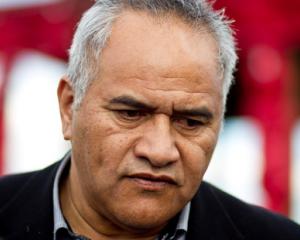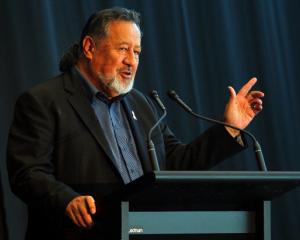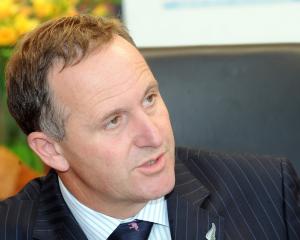Changes to Whanau Ora trumpeted by the minister in charge of the scheme, Maori Party co-leader Tariana Turia, unfortunately seem only to have raised more concerns with critics.
The Maori welfare scheme was a cornerstone of the coalition agreement between National and the Maori Party. It was implemented in 2010 by the Ministry of Maori Development (Te Puni Kokiri) the Ministry of Social Development and the Ministry of Health.
According to Te Puni Kokiri, the scheme ''is an inclusive approach to providing services and opportunities to all families in need across New Zealand.
It empowers whanau as a whole - rather than focusing separately on individual family members and their problems - and requires multiple government agencies to work together with families rather than separately with individual relatives.''
Whanau ''set their own direction''. The scheme ''is driven by a focus on outcomes: that whanau will be self-managing; living healthy lifestyles; participating fully in society; confidently participating in te ao Maori (the Maori world); economically secure and successfully involved in wealth creation; and cohesive, resilient and nurturing.''
Laudable aims certainly, but there has been increasing criticism about the scheme's effectiveness and accountability given its taxpayer-funded price tag of $164 million over four years.
In a clear failure of the scheme a Dunedin gang member was jailed for four years last November after misappropriating $20,000 from a Whanau Ora-funded family violence programme to buy cannabis to sell.
According to the ministry, there is ''a network of evaluation and action research practitioners'', but effective monitoring and reporting of its successes so far seem unclear, which is possibly not surprising given the raft of people involved: a national governance group (which includes chief executives of the three founding ministries), 10 regional leadership groups with 85 community and partner agency representatives from Te Puni Kokiri, the Ministry of Social Development and district health boards, 34 collectives and two providers representing more than 180 independent Maori, Pacific and general primary health and social services providers, as well as tribal runanga, marae and Maori trusts.
Winston Peters has been one of the scheme's most vocal critics, claiming evidence of funds being used on a range of dubious grants, projects and events. Ms Turia has been criticised as turning a blind eye to such criticisms, and claims that applicants in her electorate outnumber others favoured with funding.
Certainly, in her announcement of the changes, there was no indication they were in response to any concerns; rather a successful culmination of the work between the National Government and the Maori Party to improve the reach, capability and effectiveness of Whanau Ora.
The new-look scheme changes the governance model substantially to a private sector one, dispensing with the governance group and regional leadership groups, instead establishing a Crown-Iwi Whanau Ora partnership group comprising senior ministers, iwi chairs and Whanau Ora ''experts'', and three non-government organisation commissioning agencies, with ''their own regional networks and capabilities to support their commissioning plans and decision-making''.
Te Puni Kokiri will remain the administering department. Labour and NZ First are concerned by the lack of accountability with contracts going outside the government arena and not subject to the Official Information Act.
Of course, there are a huge range of NGOs which receive government funding, and are not directly subject to the scrutiny of the Auditor-general or Official Information Act. But there are clear guidelines, principles and expectations from the Auditor-general and Treasury in relation to NGOs, many of whom perform vital and valued roles.
Any scheme that can provide a way to improve outcomes for Maori, who are often over-represented in many negative health and social statistics, is welcome. But the issue of accountability is pertinent, particularly in light of past experiences, and critics have every right to be wary as $164 million is a lot of money - particularly if there is little to show for it.






